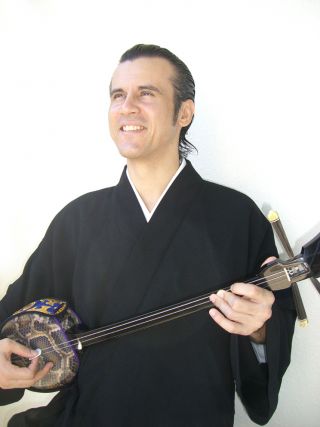Traveling Texts and the Work of Afro-Japanese Cultural Production: Two Haiku and a MicrophonePosted in Africa, Anthologies, Asian Diaspora, Books, Literary/Artistic Criticism, Media Archive on 2015-09-19 01:26Z by Steven |
Traveling Texts and the Work of Afro-Japanese Cultural Production: Two Haiku and a Microphone
Lexington Books (an imprint of Rowman & Littlefield)
June 2015
302 pages
6 1/2 x 9 1/4
Hardback ISBN: 978-1-4985-0547-5
eBook ISBN: 978-1-4985-0548-2
Edited by:
William H. Bridges IV, Assistant Professor of Japanese Studies
University of California, Irvine
Nina Cornyetz, Associate Professor
Gallatin School of Individualized Study
New York University
Traveling Texts and the Work of Afro-Japanese Cultural Production analyzes the complex conversations taking place in texts of all sorts traveling between Africans, African Diasporas, and Japanese across disciplinary, geographic, racial, ethnic, linguistic, and cultural borders. Be it focused on the make-up of the blackface ganguro or the haiku of Richard Wright, Rastafari communities in Japan or the black enka singer Jero, the volume turns its attention away from questions of representation to ones concerning the generative aspects of transcultural production. The contributors are interested primarily in texts in motion—the contradictory motion within texts, the traveling of texts, and the action that such kinetic energy inspires in readers, viewers, listeners, and travelers. As our texts travel and travail, the originary nodal points that anchor them to set significations loosen and are transformed; the essays trace how, in the process of traveling, the bodies and subjectivities of those working to reimagine the text(s) in new sites moderate, accommodate, and transfigure both the texts and themselves.




